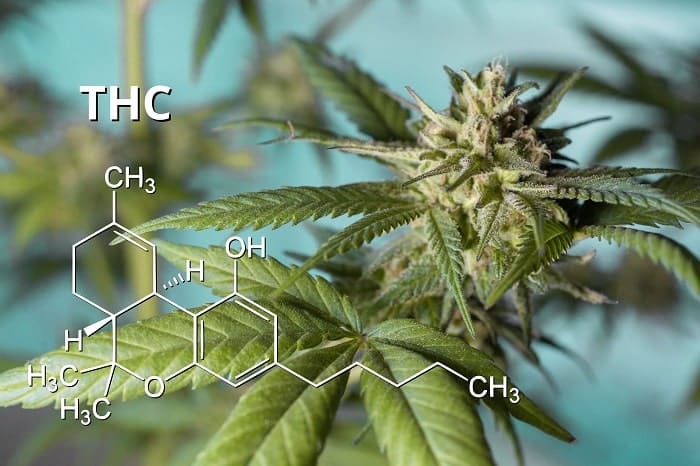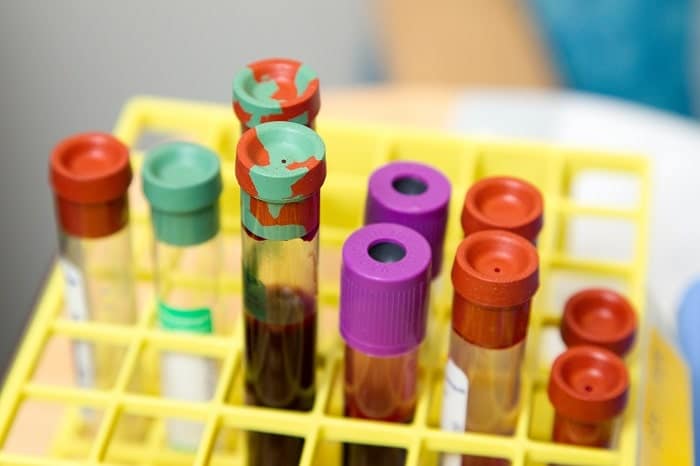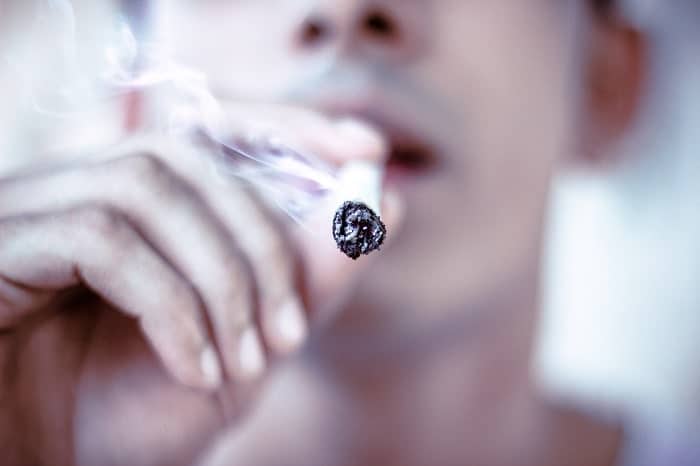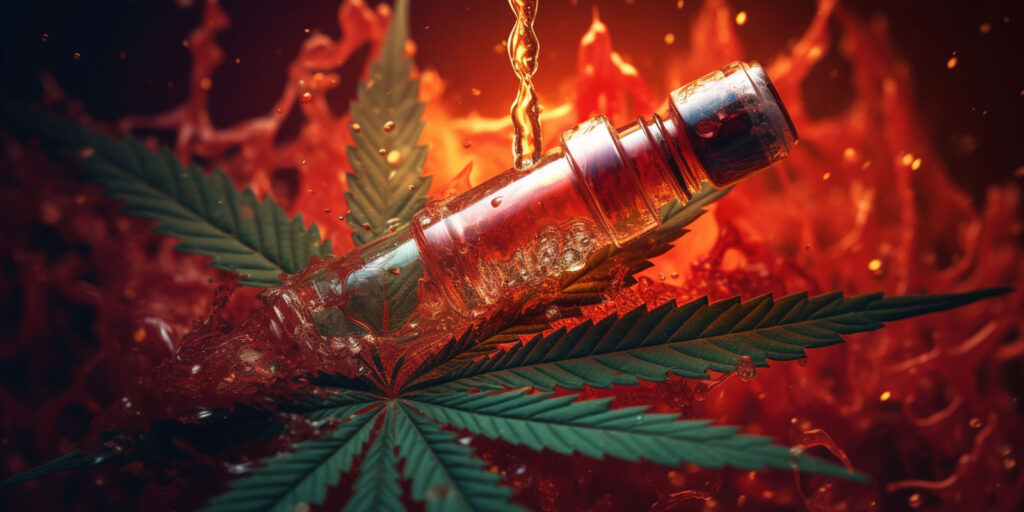It’s no secret that THC is considered a narcotic in France as in most other countries. However, the European Union considers any derivative product containing a minimal quantity of THC to be perfectly legal. Technically, it is therefore possible to consume THC legally… but not to be detected with a quantity, however small, in the blood, saliva or urine. A major question then arises: how long does THC stay in the body (blood, saliva or urine) ? The Weedy.fr team tells you the average durations for which it is detectable, depending on the different screening tests and your consumption habits.
Another solution, you can also turn to Cannabis America, completely devoid of THC.
Sommaire
ToggleTHC and THC-COOH: two molecules detectable at different times

When we talk about screening tests for cannabis consumption, we are talking, somewhat simplistically, about research for THC, the psychoactive and addictive molecule of the plant. Yet, two substances are systematically sought :
- THC, or delta-9-tetrahydrocannabinol : a cannabinoid present in the cannabis plant. After consumption, it is transmitted via the blood system to the brain, then to the rest of the body.
- THC-COOH, or 11-nor-9-carboxy-tetrahydrocannabinol: THE THC-COOH is a secondary metabolite of THC, a small molecule resulting from the “digestion” of THC by the liver.
Although non-psychoactive, THC-COOH remains longer in the body than THC. It therefore makes it possible to determine over a longer period of time whether or not an individual has consumed cannabis in the preceding hours, days or weeks, depending on the screening methods. The tests therefore focus more on this molecule than on the cannabinoid in its original form.
Different tests for detecting THC in the body

THC and THC-COOH are stored differently by different parts of the body. There are therefore several screening methods, testing saliva, blood, urine and even hair. Not all offer neither the same reliability nor the same reaction time. The type of test used will therefore mainly depend on the situation in which it is carried out and what it seeks to demonstrate (simple catch, involvement in an accident, etc.). Regardless of the test used, the risks in case of control remain the same.
Saliva tests: how long does THC stay in saliva?
Saliva tests are the most common since they are used on a large scale during road safety checks. In the event of a drive-by check, a saliva test will first be carried out. According to Drugs info service, the national information and prevention service on drugs and addiction, THC is detectable 6 to 8 hours in saliva of an occasional user. With regular use, however, the duration increases to 24 hours and caps at eight days in case of intensive and daily use.
As an indication, we can consider (still according to Drugs info service) that a occasional consumer don’t smoke no more than nine times a year, when a regular consumer takes cannabis maximum 10 times per month. Beyond that, we are already talking about “large consumers” and therefore no one to which THC remains in saliva longer than the indicated 24 hours. At least in theory. Here again, the actual duration depends quite largely on the individual themselves (genetic capital, body size, consumption habits, etc.).
Saliva tests for detection of THC (and THC-COOH) have the advantage of being fast and non-invasive. However, their reliability is questionable, particularly because of false positives. In the event of a positive test, it will therefore still be necessary to undergo a blood test before deciding on his fate.
THC in the blood: how long does THC stay in the blood?
Blood tests are generally phase 2 of a screening test. They are also preferred by medical driving license recovery boards. They are in fact much more reliable than saliva tests and make it possible to trace older consumption. THC or THC-COOH thus remain present in the blood up to 72 hours for an occasional user, And more than a month for intensive consumption.
These figures are frightening since an occasional user does not a priori present any danger to others two or three days after consuming THC, but can still test positive. The Internet is therefore full of grandmother’s tips for limit the time THC remains in the blood or urine. Some people recommend doing a lot of sport, drinking large quantities of water or even cranberry juice. So far, however, no serious study has confirmed that any technique can really accelerate the elimination of THC from the body.
THC in urine: how long does cannabis stay in urine?
Urine tests allow us to go back a little further in time. THC-COOH thus remains in the urine 3 to 5 days for occasional use And 30 to 70 days for regular use ! However, urine tests are not the most common, and generally only considered in the event of involvement in a road accident or any other problem involving the legal responsibility of the individual.
Here is, on average, how long cannabis stays in the urine when:
- Occasional consumption: 3 to 5 days.
- About every other day: 10 to 20 days.
- About once a day: 30 to 45 days.
- Intensive consumption (several times a day): up to 70 days.
Hair analysis
The hair is real diaries of our consumption. They indeed keep traces of most chemical substances to which we expose ourselves. This is true for THC, but also for certain drugs and heavy metals. Allowing you to go back as far as the age of our hair fibers allows, it involves an extensive laboratory test which is only carried out in very specific cases, particularly in the event of an autopsy if the individual has been involved in a legal matter. This may particularly be the case if there is doubt as to his involvement in a road accident.
To conclude: duration of THC in the body, the key figures

There presence of THC in the body is therefore in all cases of short duration, with a detection only possible in the hours following consumption. By assimilating it, our body keeps traces in the form of THC-COOH molecules. These are the ones that are mainly sought by the various screening tests.
By way of conclusion, here is the summary of duration of presence of THC-COOH in the body :
- Psychotropic effects: up to 12 hours, even if the effects of cannabis are not the same in all individuals.
- Saliva test: around ten hours (up to 24 hours for regular consumers, more for very large quantities), but is not particularly reliable, notably due to false positives.
- Blood screening: 3 or 4 days before complete elimination, but potentially longer if consumed regularly in large quantities.
- Urine screening: 3 to 5 days for an occasional consumer, 4 weeks or more for a frequent consumer.
- Hair test: several months or years because traces of THC persist in the hair fibers.
In any case, the exact duration during which it is possible to detect THC remains directly linked to the individual and their consumption habits (quantity and frequency). It is therefore better not to rely on average figures to ensure that you do not test positive for THC.



